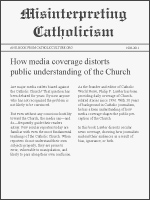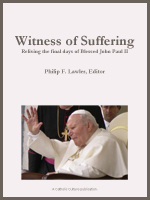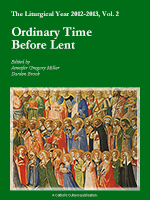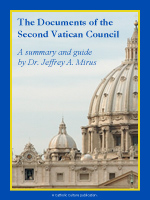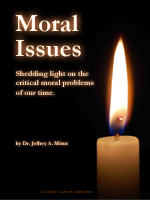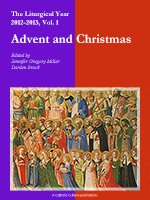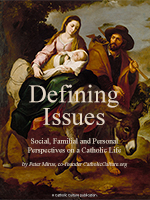In letter to SSPX, Vatican archbishop appeals for unity
Vatican City, Jan 24, 2013 / 02:01 pm (CNA/EWTN News).- Archbishop Augustine Di Noia, one of the Roman officials involved in discussions with the Society of St. Pius X, wrote a letter to the society's priests, seeking "reconciliation and healing."
"Some new considerations of a more spiritual and theological nature are needed...considerations that focus rather on our duty to preserve and cherish the divinely willed unity and peace of the Church," wrote the Dominican prelate in an Advent letter to the priests of the traditionalist society.
The Society of St. Pius X was founded by Archbishop Marcel Lefebvre in 1970 to form priests, as a response to what he described as errors that had crept into the Church following the Second Vatican Council. Its relations with the Holy See became strained in 1988 when Archbishop Lefebvre consecrated four bishops without the permission of Pope John Paul II.
The Pontifical Commission "Ecclesia Dei", of which Archbishop Di Noia is the vice president, was set up shortly after the episcopal consecrations to be responsible for relations with the Society. For the last three years, it has undertaken doctrinal discussions with the Society.
The letter was a "personal appeal" from Archbishop Di Noia, and not an "official document" of the Pontifical Commission Ecclesia Dei, Vatican spokesman Father Federico Lombardi told La Croix Jan. 19.
Archbishop Di Noia wrote that thus far, relations between the Vatican and the Society have remained "open and hopeful." At the same time, he said that "recent assertions" by members of the Society "cause concern" about the prospects for reconciliation.
He noted that "the terms of our disagreement concerning Vatican Council II have remained, in effect, unchanged," and that the recently-concluded three years of doctrinal discussions between the bodies has failed to alter the situation.
The Holy See maintains that the documents of Vatican II must, and can, be interpreted "in the light of Tradition and the Magisterium." The Society, on the other hand, insists that certain teachings of Vatican II are "erroneous" and cannot be interpreted "in line with the Tradition and the Magisterium."
In light of this circumstance, Archbishop Di Noia said that "something new must be injected into our conversations," so that discussions between Rome and Menzingen can be more than a "well-meaning but unending and fruitless exchange."
While unity is a gift of the Spirit, the archbishop said that human acts may cooperate or not with the Spirit's promptings.
He pointed to St. Thomas' sets of four virtues which contribute to Church unity, and their opposite vices which tear it down. Pride, anger, impatience, and inordinate zeal are the vices which get in the way of unity.
"In the past forty years, has there at times been a lack of humility, mildness, patience, and charity in our mutual relations," asked Archbishop Di Noia.
He asked the priests of the Society to cultivate those virtues, because interactions marked by their corresponding vices "will lead to nothing but bitterness."
The archbishop went on to refer at length to St. Augustine, who placed great emphasis on the unity of the Church. He said the Church Father believed Church unity is necessary to remain in communion with God, and that therefore "we must preserve this unity with great determination, even if it involves suffering and patient endurance."
Archbishop Di Noia then addressed the place of the Society in the Church, acknowledging that it has an "authentic charism."
He reassured the Society's priests that they are not being asked to abandon the zeal of their founder, but to "renew the flame of his ardent zeal to form men in the priesthood of Jesus Christ."
That charism, said the archbishop, must be "recaptured...the authentic charism of the Fraternity is to form priests for the service of the people of God."
He exhorted the Society's members not to "focus" their preaching and formation on difficult to reconcile passages of the Magisterium, and to remember the example of St. Pius X.
That Pope, he noted, had a continual concern for sacred music, but wrote documents about it only as fitted his station, first as a bishop, then as Patriarch of Venice, and finally as the Roman Pontiff.
This example, Archbishop Di Noia suggested, illustrates proper proposals and influence, without disrespecting or acting against "legitimate local authorities." He offered that theological difficulties should be handled more discreetly and always with respect for the responsible authority, never becoming "a sort of 'parallel magisterium' of theologians."
"We must see each doctrine and article of faith as supporting the others, and learn to understand the inner connections between each element of our faith," he reminded the priests to whom he wrote.
In his conclusion, Archbishop Di Noia acknowledged that "full ecclesial reconciliation" may not bring about "an immediate end" to "suspicion and bad feeling."
Despite this, he said "we are seeking reconciliation and healing by God's grace under the loving guidance of the Holy Spirit...our souls need first to be healed, to be cleansed of the bitterness and resentment that comes from thirty years of suspicion and anguish on both sides."
He pleaded that his readers pray that God heal any "desire for an autonomy that is in fact outside the traditional forms of governance of the Church."
Archbishop Di Noia reminded them that "the only imaginable future for the Priestly Fraternity lies along the path of full communion with the Holy See, with the acceptance of an unqualified profession of the faith in its fullness, and thus with a properly ordered ecclesial, sacramental and pastoral life."
The archbishop concluded his letter by appropriating Saint Paul's words, urging all "to live in a manner worthy of the call you have received, with all humility and gentleness, with patience, bearing with one another through love, striving to preserve the unity of the Spirit through the bond of peace."
Tags: Society of St. Pius X
